9 start with M start with M
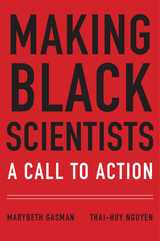
Americans have access to some of the best science education in the world, but too often black students are excluded from these opportunities. This essential book by leading voices in the field of education reform offers an inspiring vision of how America’s universities can guide a new generation of African Americans to success in science.
Educators, research scientists, and college administrators have all called for a new commitment to diversity in the sciences, but most universities struggle to truly support black students in these fields. Historically black colleges and universities (HBCUs) are different, though. Marybeth Gasman, widely celebrated as an education-reform visionary, and Thai-Huy Nguyen show that many HBCUs have proven adept at helping their students achieve in the sciences. There is a lot we can learn from these exemplary schools.
Gasman and Nguyen explore ten innovative schools that have increased the number of black students studying science and improved those students’ performance. Educators on these campuses have a keen sense of their students’ backgrounds and circumstances, familiarity that helps their science departments avoid the high rates of attrition that plague departments elsewhere. The most effective science programs at HBCUs emphasize teaching when considering whom to hire and promote, encourage students to collaborate rather than compete, and offer more opportunities for black students to find role models among both professors and peers.
Making Black Scientists reveals the secrets to these institutions’ striking successes and shows how other colleges and universities can follow their lead. The result is a bold new agenda for institutions that want to better serve African American students.

For many college students, studying the hard sciences seems out of the question. Students and professors alike collude in the prejudice that physics and molecular biology, mathematics and engineering are elite disciplines restricted to a small number with innate talent. Gregory Light and Marina Micari reject this bias, arguing, based on their own transformative experiences, that environment is just as critical to academic success in the sciences as individual ability. Making Scientists lays the groundwork for a new paradigm of how scientific subjects can be taught at the college level, and how we can better cultivate scientists, engineers, and other STEM professionals.
The authors invite us into Northwestern University’s Gateway Science Workshop, where the seminar room is infused with a sense of discovery usually confined to the research lab. Conventional science instruction demands memorization of facts and formulas but provides scant opportunity for critical reflection and experimental conversation. Light and Micari stress conceptual engagement with ideas, practical problem-solving, peer mentoring, and—perhaps most important—initiation into a culture of cooperation, where students are encouraged to channel their energy into collaborative learning rather than competition with classmates. They illustrate the tangible benefits of treating students as apprentices—talented young people taking on the mental habits, perspectives, and wisdom of the scientific community, while contributing directly to its development.
Rich in concrete advice and innovative thinking, Making Scientists is an invaluable guide for all who care about the future of science and technology.
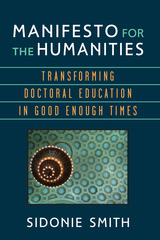
Grounding this manifesto in background factors contributing to current “crises” in the humanities, Smith advocates for a 21st century doctoral education responsive to the changing ecology of humanistic scholarship and teaching. She elaborates a more expansive conceptualization of coursework and dissertation, a more robust, engaged public humanities, and a more diverse, collaborative, and networked sociality.
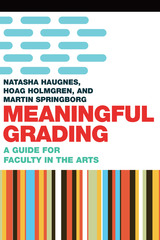
College and university faculty in the arts (visual, studio, language, music, design, and others) regularly grade and assess undergraduate student work but often with little guidance or support. As a result, many arts faculty, especially new faculty, adjunct faculty, and graduate student instructors, feel bewildered and must “reinvent the wheel” when grappling with the challenges and responsibilities of grading and assessing student work.
Meaningful Grading: A Guide for Faculty in the Arts enables faculty to create and implement effective assessment methodologies—research based and field tested—in traditional and online classrooms. In doing so, the book reveals how the daunting challenges of grading in the arts can be turned into opportunities for deeper student learning, increased student engagement, and an enlivened pedagogy.
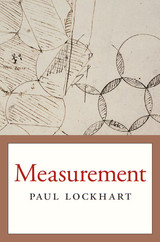
For seven years, Paul Lockhart’s A Mathematician’s Lament enjoyed a samizdat-style popularity in the mathematics underground, before demand prompted its 2009 publication to even wider applause and debate. An impassioned critique of K–12 mathematics education, it outlined how we shortchange students by introducing them to math the wrong way. Here Lockhart offers the positive side of the math education story by showing us how math should be done. Measurement offers a permanent solution to math phobia by introducing us to mathematics as an artful way of thinking and living.
In conversational prose that conveys his passion for the subject, Lockhart makes mathematics accessible without oversimplifying. He makes no more attempt to hide the challenge of mathematics than he does to shield us from its beautiful intensity. Favoring plain English and pictures over jargon and formulas, he succeeds in making complex ideas about the mathematics of shape and motion intuitive and graspable. His elegant discussion of mathematical reasoning and themes in classical geometry offers proof of his conviction that mathematics illuminates art as much as science.
Lockhart leads us into a universe where beautiful designs and patterns float through our minds and do surprising, miraculous things. As we turn our thoughts to symmetry, circles, cylinders, and cones, we begin to see that almost anyone can “do the math” in a way that brings emotional and aesthetic rewards. Measurement is an invitation to summon curiosity, courage, and creativity in order to experience firsthand the playful excitement of mathematical work.

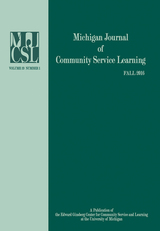
Each issue consists of articles at the cutting edge of research, theory, pedagogy, and other matters related to academic service-learning, campus-community partnerships, and engaged, public scholarship in higher education that extend the knowledge base and support and strengthen researchers’ and practitioners’ work. We also publish review essays of newly-released books pertinent to service-learning and community engagement.
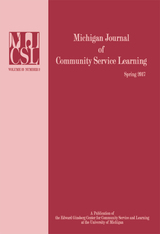
Each issue consists of articles at the cutting edge of research, theory, pedagogy, and other matters related to academic service-learning, campus-community partnerships, and engaged, public scholarship in higher education that extend the knowledge base and support and strengthen researchers’ and practitioners’ work. We also publish review essays of newly-released books pertinent to service-learning and community engagement.
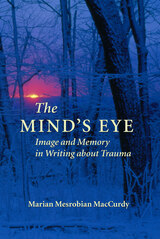
MacCurdy begins by discussing what trauma is, how traumatic memories are stored and accessed, and how writing affects them. She then focuses on the processes involved in translating traumatic images into narrative form, showing how the same patterns and problems emerge whether the writers are students or professionals. Using examples drawn from the classroom, MacCurdy investigates the beneficial effects of the study of trauma on communities as well as individuals, witnesses as well as writers, and explores the implications of these relationships for the world at large, particularly as they pertain to issues of justice, retribution, and forgiveness.
Throughout the volume the author draws on her own experience as teacher, writer, survivor, and descendant of survivors to explain how one can engage student work on difficult subjects without appropriating the texts or getting lost in the emotions generated by them. She further shows how appropriate safeguards can be put in place to protect both teacher and student writer. The end result of such a pedagogy, MacCurdy demonstrates, is not simply better writers but more integrated people, capable of converting their own losses and griefs into compassion for others.
READERS
Browse our collection.
PUBLISHERS
See BiblioVault's publisher services.
STUDENT SERVICES
Files for college accessibility offices.
UChicago Accessibility Resources
home | accessibility | search | about | contact us
BiblioVault ® 2001 - 2024
The University of Chicago Press









